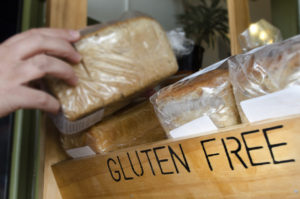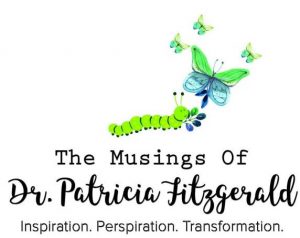Article Update, June 2019: Glyphosate Contamination in Still Affecting Foods Marketed to Children
Since the original writing of this article in 2017, news broke on potentially unsafe levels of glyphosate (the cancer-causing ingredient in Round-Up Weed Killer) in foods marketed to children, such as oat-based cereals and baby food.
Given the recent lawsuits won by cancer victims against glyphosate manufacturer, Monsanto, you would think these food companies would have taken swift action to remove this poisonous substance from their products.
But, according to a recent report from the Environmental Working Group (EWG), they have taken no such action.
In a new round of tests, EWG found that popular cereals from companies like General Mills still contain glyphosate, with only 4 brands containing “what EWG scientists consider protective for children’s health with a sufficient margin of safety”.
To learn which cereals you should be avoiding and to make your voice heard, check out this report from EWG.
Please consider organic products to avoid or minimize your exposure to glyphosate.
And read on to learn about why many experts believe that many cases of wheat and gluten intolerance/sensitivity may actually be a glyphosate issue.
****
Have you been told, or suspect, you may have a gluten sensitivity?
The gluten-free diet, once reserved for those with celiac or the very progressively health-conscious to soothe digestive complaints, has become a wildly popular attempt to lose weight, increase energy, and help heal a variety of chronic diseases.
The reason is: gluten can contribute to inflammation, which leads to gut health issues and opens the door for chronic and autoimmune disease.
However, the idea that everyone should abstain from all gluten is controversial.
After all, there are many nourishing foods, such as barley, oats, and einkorn, that contain gluten.
Plus, humankind has consumed and thrived on glutenous foods since Biblical times: “give us this day our daily bread”…why all the fuss about gluten today?
There are many theories and opinions on why an estimated 5% of the population has become full-blown gluten intolerant, and why millions more suffer from gluten sensitivity.
But, for those without full-blown celiac disease, I always question whether gluten is the real culprit…or could it be wheat?
In today’s post, I will share with you the research on why I sense the majority of people without Celiac disease are actually suffering from a wheat intolerance due to the insidious pesticide (banned in 5 countries and counting): glyphosate.
Plus, we’ll cover exactly which type wheat I recommend everyone avoid to prevent chronic disease (and why) and what types of wheat you can eat instead.
How Glyphosate Has Made Wheat Toxic to Humans
Up until recently, I had been scratching my head trying to figure out why more and more patients could no longer tolerate whole grain bread.
A few years ago, patients without gluten sensitivities could typically switch from eating white flour products to whole wheat and see marked improvements in their health…but this is simply not the case anymore.
Based on feedback from countless patients who had traveled abroad and indulged in breads, pastas, and pastries without the digestive issues they experience here, I knew it couldn’t be a gluten issue. So, what the heck was going on?
Like many of my integrative doctor and nutritionist colleagues, I have suspected big agriculture may have been genetically-modifying wheat crops here in the United States.
But, after reading everything I could get my hands on about GMOs, I found that was (thankfully) not the case…or not exactly the case.
What my research did reveal was the real, little-known reason so many of us are allergic or sensitive to North American wheat: glyphosate pesticides…and lots of it.

The Glyphosate Wheat Harvest
As it turns out, it is standard practice for conventional wheat farmers to routinely desiccate their crops with huge amounts of glyphosate pesticides right before harvest (eeeek!).
The rationale for this practice is the glyphosate helps quickly ripen and dry out the wheat which makes it easier to harvest, increasing profits and reducing labor costs for farmers.
The obvious problem with this practice for consumers is glyphosate pesticides have been officially banned in 5 countries due to their negative health effects. In my own state of California, a judge recently ruled the state could apply a cancer-warning label to glyphosate products.
And thanks to research conducted by Dr. Stephanie Seneff, a senior research scientist at the Massachusetts Institute of Technology (MIT), we now know glyphosate pesticides play a huge role in gluten and wheat intolerance (among other health issues)1.
Which explains why so many people can enjoy wheat overseas in some countries where it is not used, but not here in American where glyphosate is approved for free use on crops.
Let’s take a look at how glyphosate contributes to wheat and gluten sensitivities.
How Glyphosate Pesticides Cause (or exacerbate) Gluten and Wheat Sensitivities
Without getting overly technical, here’s how the glyphosate-wheat-gluten-gut-health-allergy chain works.
According to Dr. Seneff’s research as published in the Interdisciplinary Toxicology journal2:
“Glyphosate, patented as an antimicrobial, has been shown to disrupt gut bacteria in animals, preferentially killing beneficial forms and causing an overgrowth of pathogens.”
That means glyphosates wipe out your beneficial gut bacteria, kind of like antibiotics except they specifically target the good bacteria.
As we’ve discussed in previous posts, a well-diversified gut microbiome is essential to strong immunity, digestion, and your body’s ability to keep inflammation in check.
If that gut bacteria is regularly targeted by things like glyphosates, antibiotics, NSAID drugs, etc., it leaves you vulnerable to conditions like leaky gut syndrome, which can easily progress to food sensitivities and even full-blown autoimmune conditions, if left unchecked.
So eating foods like wheat, which are dowsed with glyphosate pesticides and likely not cleaned very well before being milled into flour, is a surefire way to start degrading your gut health and open the doors to food sensitivities.
But that’s not all.
Dr. Seneff’s team also found glyphosates negatively affect our bodies in two other significant ways:
- By chelating out essential minerals like iron and cobalt,
- and interfering with cytochrome P450 (CYP) enzymes.
The implications of mineral deficiencies include digestion issues, among other things, and by inhibiting the cytochrome P450 enzymes, glyphosates essentially interfere with your body’s ability to detoxify3. This means every other toxin you consume or are exposed to becomes that much harder for your body to get rid of.
And what does toxicity lead to in the human body over time? Inflammation, disease, and food intolerance.
As you can see, the amount of antimicrobial glyphosate in wheat products is a big deal when it comes to digestive health and your gut microbiome.
And, in Traditional Chinese Medicine and other disciplines, your digestive health is seen as a reflection of your overall well-being.
I often wonder, based on this convincing research: how many people would have been spared a full-blown gluten-allergy or Celiac diagnosis, had they known to stop eating North American wheat products early on?
Thankfully, unless you have full-blown celiac or need to refrain from gluten per doctor recommendations, there are specific wheat products you can enjoy without exposing yourself to the detriments of glyphosates.
Healthier Glyphosate-Free Wheat Alternatives for Non-Celiac Individuals and Families
First off, you can try eating organic whole wheat and see how you fare, but it’s not my first recommendation.
My concern with organic wheat in this country is it is still a highly-hybridized product with a lot more gluten and starch than it had several hundred years ago.
So, while you won’t get the negative effects of glyphosate by eating organic wheat, there are healthier, more nutritious choices available such as:
- Einkorn—if you haven’t tried Einkorn flour yet, you’re in for a treat. This is the oldest, unhybridized wheat in the world, and was recently re-discovered in Italy and brought to the United States. It’s much lower in gluten than traditional wheat, super-nutritious, and can even be enjoyed by those with certain autoimmune conditions when prepared as a sourdough (but check with your practitioner). It is considered the “purest” form of ancient wheat.
- Spelt—spelt has been around for centuries and, though not typically unhybridized, it does have shorter chains of gluten, is rich in nutrients, and easier to digest than conventional wheat. It’s also typically a bit more affordable than Einkorn, and easy to cook and bake with.
- Kamut—kamut is a lot like spelt, rich in minerals, easier to digest, and easy to bake with.
There are other gluten-containing and non-gluten-containing flours you can try like red wheat, amaranth, millet flour, coconut flour, gluten-free flours, and teff, but the above are my top 3 favorites in terms of flavor, nutrition, and ease of use.
You can find these flours and their products in natural food stores or online.
In closing, I would encourage you to check out Dr. Seneff’s research on glyphosates (which you can read about in this link or Google her as she has some good YouTube footage), as she is one of the most progressive researchers and champions when it comes to exposing the health detriments of these toxic pesticides.
I hope this post has shed some light on the cause behind the rapid rise in gluten and wheat sensitivities in our culture, and given you some food-for-thought when it comes to choosing the best types of wheat products to prevent disease and support good health.
Who knows…perhaps after reading this post and consulting with your practitioner you can once again enjoy a slice of nourishing daily bread (einkorn, spelt, or kamut respectively).
In health,
-Dr. Patricia
- https://www.ncbi.nlm.nih.gov/pmc/articles/PMC3945755/
- https://www.ncbi.nlm.nih.gov/pmc/articles/PMC3945755/
- http://www.mdpi.com/1099-4300/15/4/1416

